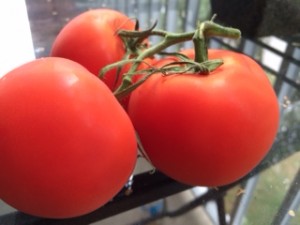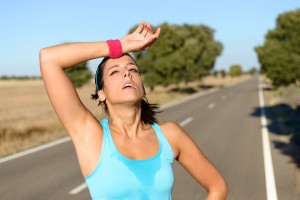 How you approach strength training or exercise of any form can greatly impact the results you achieve and your safety while performing them. Here are some tips and strategies on how to avoid injury and get optimal results while exercising:
How you approach strength training or exercise of any form can greatly impact the results you achieve and your safety while performing them. Here are some tips and strategies on how to avoid injury and get optimal results while exercising:
- Always warm up and cool down properly. Examples of warming up and cooling down include cardiovascular training for 10 minutes prior, and stretching following exercise.
- Use proper form to avoid injuries and maximize gains. If you are not using the proper technique, all of your hard work will be for nought! You can learn good form through a class or one-on-one sessions with a certified exercise professional.
- Breathe out when you are lifting or pushing; breathe in as you slowly release the load or weight. Never hold your breath while straining. This action, called the Valsalva maneuver, can temporarily raise your blood pressure and can be risky for people with heart disease. It also puts more stress on the pelvic floor muscles, and can lead to some unfortunate conditions including hernias and organ prolapse.
- Don’t lock your joints; always leave a slight bend in your knees and elbows when straightening out your legs and arms.
- Don’t be so eager to see results that you risk hurting yourself by exercising too long or choosing too much weight. And remember that it’s important to rest muscles for at least 48 hours between strength training sessions. It might be useful for novice strength trainers to start with a shorter strength training session, and gradually work their way up to longer sessions. This might also include starting with one strength training session per week and gradually working up to 2-3 times per week.
- If you’ve been sick, give yourself one or two days off after recovering. If you were ill for a while, you may need to use lighter weights or less resistance when you first resume exercising.
- Strength training exercises should not cause pain while you are doing them. If an exercise or movement causes significant pain, stop doing it! When performing an exercise, stick with a range of motion that feels comfortable. Over time, try to gradually extend that range. This being said, if you have experienced a specific injury in the past, it is important to consult a health care provider such as a Naturopathic Doctor so that they can help you modify exercises to fit your body’s needs and strengthen necessary muscle groups.
- Listen to your body and cut back if you aren’t able to finish a series of exercises or an exercise session, can’t talk while exercising, feel faint after a session, feel tired during the day, or suffer joint aches and pains after a session.
Have you benefitted from reading this blog? Know someone that would benefit as well? Share, Like, Comment, or Tweet this article, and let me know what you think.
Some of the information provided above may not be appropriate for everyone, please consult with your doctor before trying any of the above. If you are interested in Naturopathic Medicine and wanting a different approach to your health care needs, contact Elisha Cook via the contact portion of this website.
Source: Harvard Medical School



